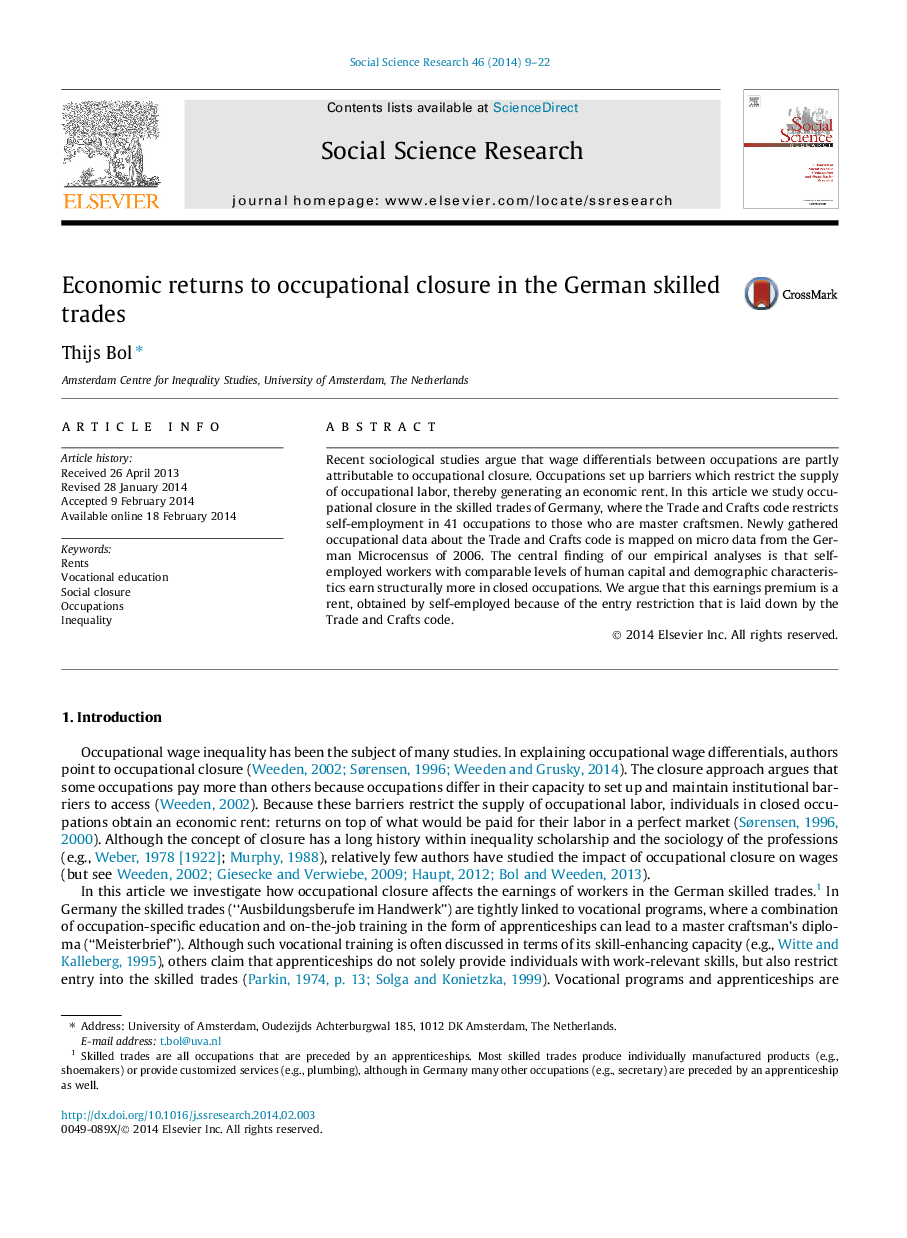| Article ID | Journal | Published Year | Pages | File Type |
|---|---|---|---|---|
| 955916 | Social Science Research | 2014 | 14 Pages |
•The Trade and Crafts code regulates access to skilled trades occupations in Germany.•This law restricts entry to self-employment to those with a master craftsman degree.•We claim that this regulation is a form of occupational closure that generates rents.•Results from our multilevel analyses support this claim.•Self-employed workers obtain an economic rent when they work in closed skilled trades occupations.
Recent sociological studies argue that wage differentials between occupations are partly attributable to occupational closure. Occupations set up barriers which restrict the supply of occupational labor, thereby generating an economic rent. In this article we study occupational closure in the skilled trades of Germany, where the Trade and Crafts code restricts self-employment in 41 occupations to those who are master craftsmen. Newly gathered occupational data about the Trade and Crafts code is mapped on micro data from the German Microcensus of 2006. The central finding of our empirical analyses is that self-employed workers with comparable levels of human capital and demographic characteristics earn structurally more in closed occupations. We argue that this earnings premium is a rent, obtained by self-employed because of the entry restriction that is laid down by the Trade and Crafts code.
